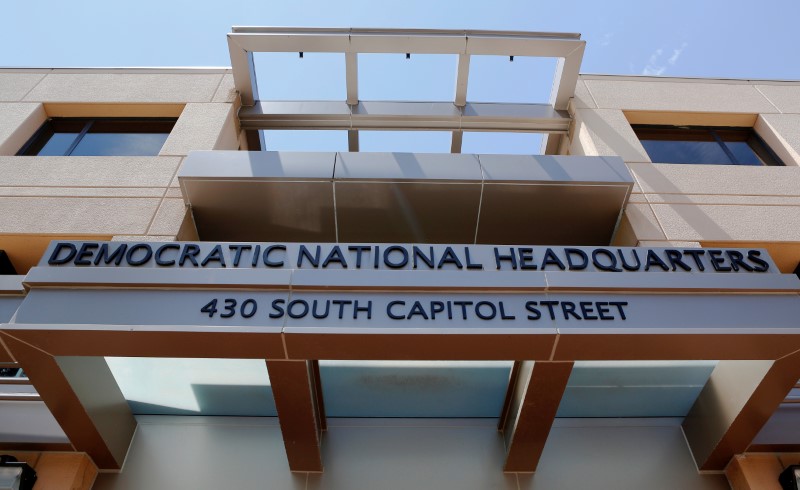Investing.com’s stocks of the week
By Arshad Mohammed and Jonathan Landay
WASHINGTON (Reuters) - U.S. intelligence agencies obtained what they considered to be conclusive evidence after the November election that Russia provided hacked material from the Democratic National Committee to WikiLeaks through a third party, three U.S. officials said on Wednesday.
U.S. officials had concluded months earlier that Russian intelligence agencies had directed the hacking, but had been less certain that they could prove Russia also had controlled the release of information damaging to Democratic presidential candidate Hillary Clinton.
The timing of the additional intelligence is important because U.S. President Barack Obama has faced criticism from his own party over why it took his administration months to respond to the cyber attack. U.S. Senate and House leaders, including prominent Republicans, have also called for an inquiry.
At the same time, President-elect Donald Trump has questioned the U.S. intelligence community's conclusion that Russia tried to help his candidacy and hurt Clinton's. Russia has denied the hacking allegations.
A U.S. intelligence report on the hacking was scheduled to be presented to Obama on Thursday and to Trump on Friday, though its contents were still under discussion on Wednesday, officials said.
They said the post-election intelligence gave the Obama administration greater certainty about the full role of the Russian government in the hacking and leaks of documents than it had on Oct. 7, when the U.S. intelligence agencies had said they were "confident" Russia orchestrated the hacking.
The additional intelligence also informed U.S. President Barack Obama's decision to retaliate on Dec. 29 by expelling 35 suspected Russian spies and sanctioning two Russian spy agencies, four intelligence officers and three companies, a decision that capped four months of debate at the White House about how to respond, the officials said.
The officials declined to describe the intelligence obtained about the involvement of a third-party in passing on leaked material to WikiLeaks, saying they did not want to reveal how the U.S. government had obtained the information.
In an interview with Fox News, WikiLeaks founder Julian Assange said he did not receive emails stolen from the DNC and top Hillary Clinton aide John Podesta from "a state party." Assange did not rule out the possibility that he got the material from a third party.
Trump on Wednesday sided with Assange and again questioned the U.S. intelligence community's conclusion that Russia tried to help his candidacy and hurt Clinton's.
Concern by U.S. officials over the hacking first spiked in August, when intelligence agencies concluded that Russian intelligence, with the direction of President Vladimir Putin, had been trying to disrupt and discredit the presidential and congressional elections.
Obama in August rejected recommendations from some of his advisors to disclose the Russian link and take some limited covert action as "a shot across Putin's bow to knock it off," one official with knowledge of the matter said.
Instead, Obama warned Putin privately, arguing that a similar private message to Chinese President Xi Jinping had reduced Chinese hacking into U.S. agencies and companies.
In October, Obama again declined to take action, arguing such a move could be seen as an effort to help Clinton and discredit Republican Trump, one that could stain a Clinton presidency, one official said.
Obama took public action on the issue only after Trump was elected and began disparaging the intelligence community's reporting on the Russian hacking, another official said.
